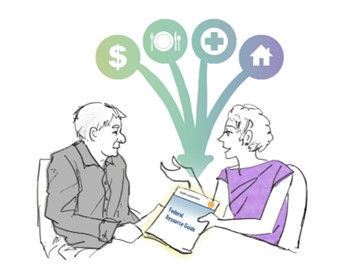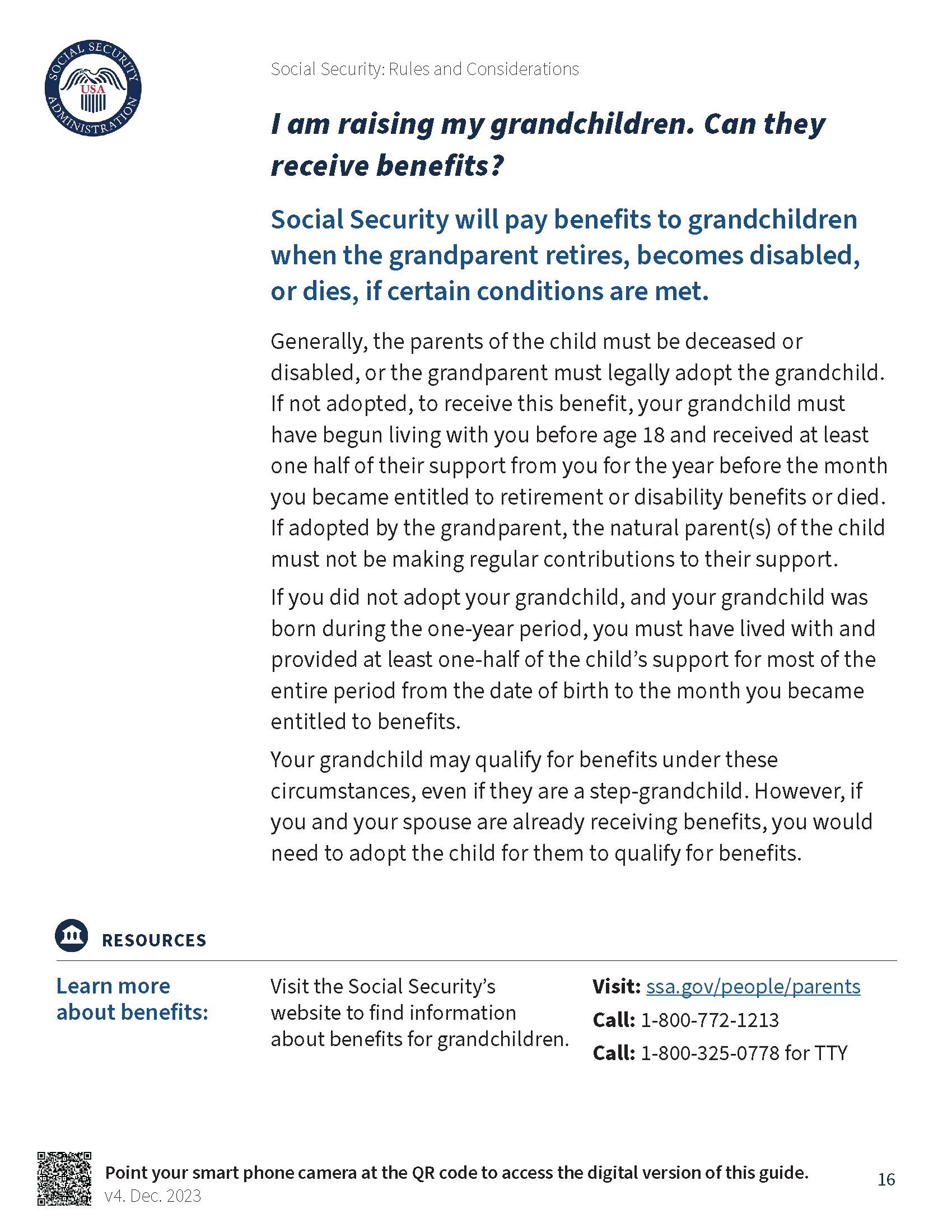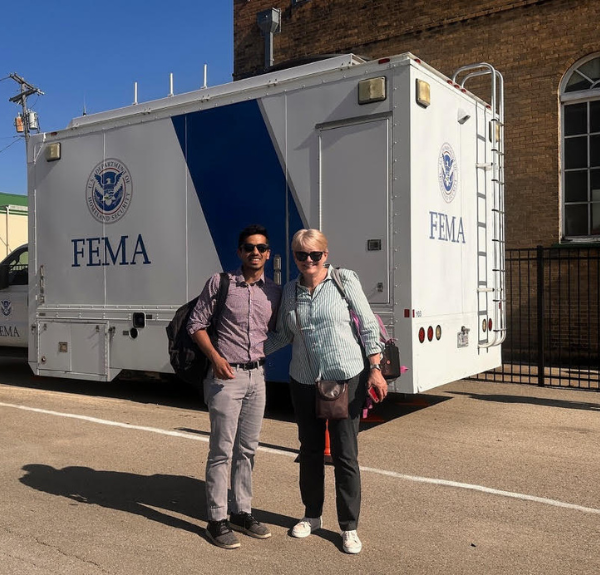As a person ages there are both new opportunities and new challenges. Instead of life getting simpler, many are faced with the daunting task of making critical decisions about healthcare, housing, and finances. This challenge is particularly hard for those with limited financial resources and networks of support. The sheer volume of information, complex bureaucracy, financial concerns, and health issues can be overwhelming and exacerbate the difficulties of making these important decisions.
The Approaching Retirement team set out to improve federal services for older adults, as one of the five interagency Life Experiences teams of the President’s Management Council named in Executive Order 14058 of December 13, 2021, Transforming Federal Customer Experience and Service Delivery to Rebuild Trust in Government. The team’s research sought to understand people’s experiences and find opportunities for the Federal Government to better meet older adults’ needs. The team’s research shed light on a critical issue: older people seek better support to make decisions that are in their best interest to avoid losing out on benefits and to avoid penalties. Interviews with older adults and front line staff at community-based organizations (CBOs) consistently emphasized the need for clear and centralized information about federal benefits and programs. Through the research process, the team listened to individuals like Diana, a 64-year-old who expressed a common sentiment:
“I wish I could find an agency and place that would give me all the info instead of me having to call so many different people. Instead of people talking above me, talk at me so I can understand it.”
The team collaborated with CBOs who are trusted resources for older adults looking for personalized, one-on-one support. CBOs understand the challenges the community faces but are often hampered by the scattered landscape of federal information — limiting their efficiency and impact.
“To the person who has the question it seems simple and direct, but it’s not easy to find those answers in the raft of manuals and websites. So they end up asking their neighbors and it ends up being urban legend.” – CBO staff member
In 2023, the interagency team developed two major, cross-cutting resources addressing these needs: a series of Federal Decision Support Guides and a Federal Forum on Serving Older Adults. Both of these interagency resources are coordinated through the Administration for Community Living (ACL) of the U.S. Department of Health and Human Services (HHS). The Federal Decision Support Guide consolidates benefit and program information from seven federal agencies in order to help older adults, their caregivers, and frontline staff make better-informed decisions about healthcare, finances, housing, and nutrition. The Federal Forum will be covered in a future blog post.
Agencies and CBOs Co-Developed Concepts to Support Older Adults
To create these resources, the interagency team brought together agency staff from 15 CBOs and 12 national organizations. The cross-agency team was comprised of staff from: HHS (ACL and Center for Medicare & Medicaid Services), Consumer Financial Protection Bureau (CFPB), U.S. Department of Housing and Urban Development, Social Security Administration, U.S. Department of Agriculture, and the Office of Management and Budget (U.S. Digital Service). The participating CBOs represented a diverse range of voices, including those from Tribal areas, LGBTQ+ communities, underserved urban communities, and rural communities, working to ensure the solutions were inclusive and equitable.
The group of federal and CBO staff participated in two project scoping workshops, where they brainstormed and prioritized ideas for improving decision-making support for older adults navigating retirement.
Following these workshops, service designers from the CFPB and U.S. Digital Service facilitated bi-weekly sessions with a testing cohort consisting of nine of the 15 CBOs from the scoping workshops. The testing cohort provided iterative feedback and valuable insights about the needs of both their staff and clients, which directly influenced the development of prototypes. For instance, the team learned that CBOs often mail pamphlets because clients prefer printed resources, that older adults are usually focused on addressing one issue at a time, and that older adults rely on CBOs to help guide them through retirement decisions in a way that federal program staff are often not able to do. CBOs in the testing cohort included:
- Age Options (Chicago, IL)
- Asian Services in Action (Cleveland, OH)
- Chinese Community Center (Houston, TX)
- Elder Law of Michigan (Lansing, MI)
- NY Statewide Senior Action council (Albany, NY)
- Santo Domingo Health Clinic (Santo Domingo Pueblo, New Mexico)
- Senior Towers Apartments Millennia Housing (Part of the American Association of Service Coordinators, Cleveland, OH)
- South Alabama Regional Planning Commission (Mobile, AL)
- Washington State Office of the Insurance Commissioner (Olympia, WA)

Testing With End Users Built Confidence in the Concept of a Federal Decision Support Guide
The Federal Decision Support Guide is designed to address needs of both CBOs and older adults: CBOs need to quickly access authoritative information about federal programs and benefits; older adults need information presented in a consolidated, easy-to-understand, and actionable format. The testing cohort shared that the Federal Decision Support Guide should be organized in a way that allows them to easily curate relevant information for their customers and help guide them towards action. As a result, the guide is broken down into modules, for example “healthcare” or “housing,” that contain program information from multiple agencies.
Each module covers federal benefits and services available, rules and considerations for eligibility, how and where to apply, and where to turn for personalized assistance. Content is written in the first person and in an action-oriented format to address the real-life concerns of older adults, such as:
“I’m raising my grandchildren, can they receive benefits?” or “I am having trouble paying for food. What help is there?”

The cross-agency team and the testing cohort developed several drafts of the Federal Decision Support Guide, created user testing plans, and recruited staff and members of the public to test the modules. The content was tested for clarity, usefulness, and value with six front line staff and six members of the public. Using this feedback, the cross-agency team made improvements to improve plain language and modularity, and to clarify next steps consumers can take.
The Administration for Community Living Will Lead the Pilot Phase of Work
Moving forward, the Administration for Community Living, an office in HHS, will lead the next phase of this effort. ACL exists to make it possible for older adults and people with disabilities to live and participate fully in their communities. To meet that vision, ACL funds direct services and supports that are provided primarily through networks of CBOs with significant experience providing holistic support to older adults. In FY 2024, six ACL-funded CBOs have agreed to pilot the Federal Decision Support Guide through two rounds of testing with at least 100 older adults each. Interviews, surveys, and focus groups will be used to assess and explore how the guide can be improved to help older adults.
Get Involved
The final Federal Decision Support Guide is published on Performance.gov and on the ACL website. Spanish, Mandarin, and Korean translations are forthcoming this year. If you are interested in providing feedback on the pilots for the Federal Decision Support Guide, please download the modules and provide your feedback to OHIC@acl.hhs.gov.
Stay Informed
We invite you to continue to track the Approaching Retirement Life Experience Team’s progress and to keep up with announcements by following Performance.gov on LinkedIn and Twitter (X). Performance.gov will also be updated quarterly with progress on all agency and President’s Management Agenda priorities. Subscribe to our newsletter to receive updates straight to your inbox.




